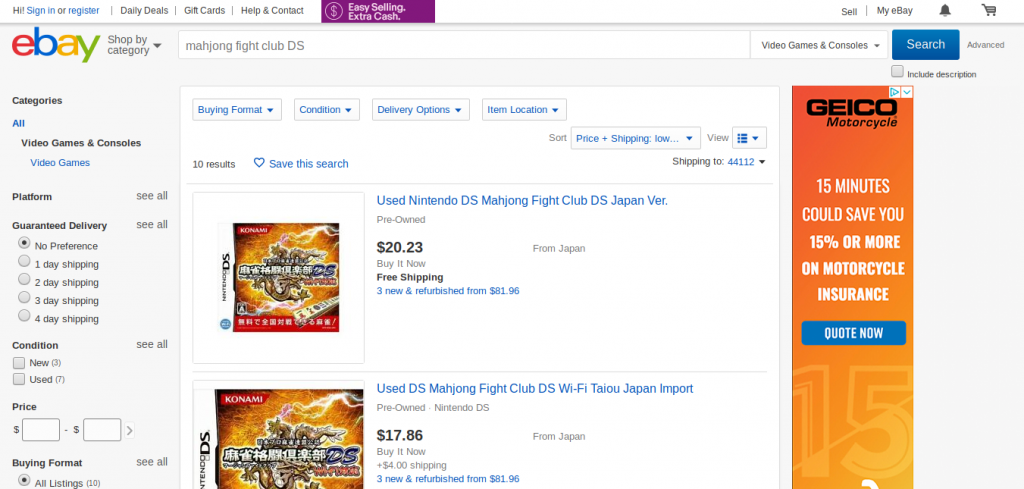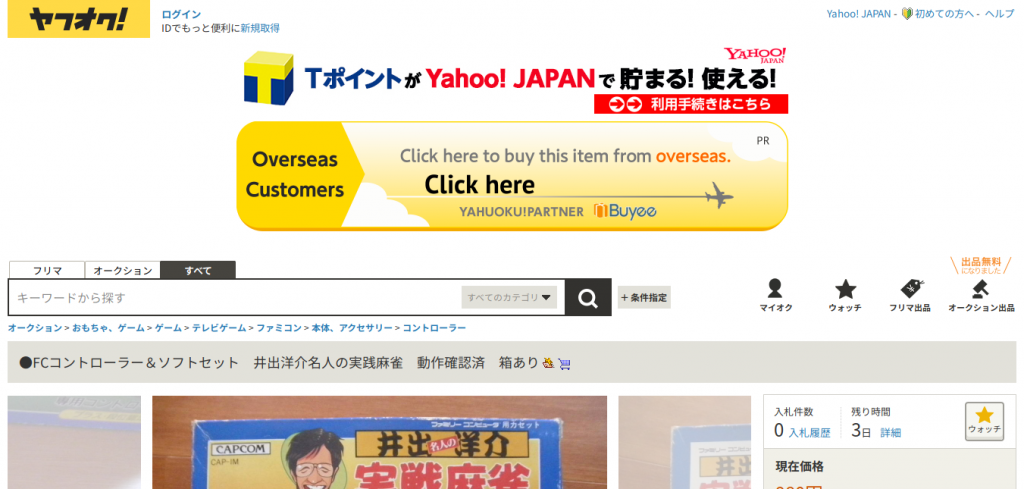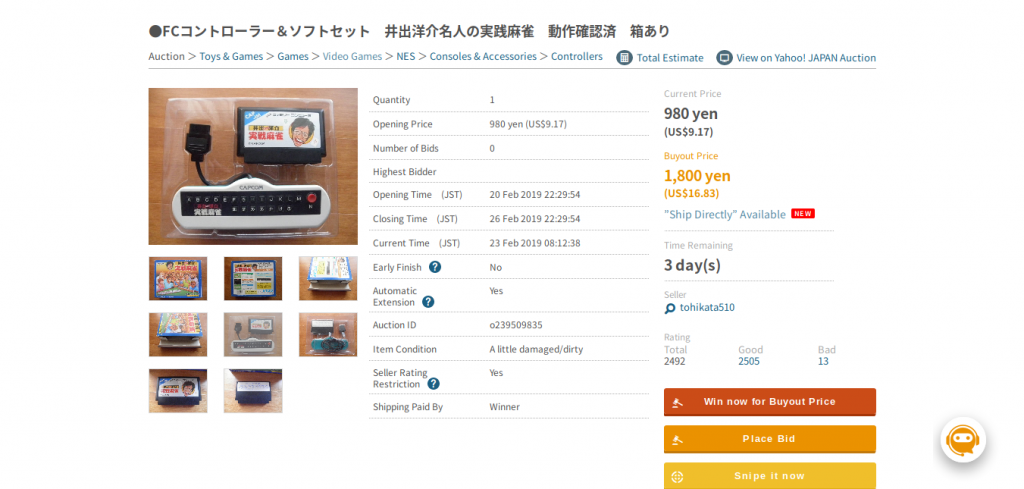Mahjong games have an interesting dichotomy. In Japan, the market was saturated, with many consoles getting mahjong as part of their launch line-up. Though the popularity of these games has declined over the years, there are many games available for virtually every console and home computer on the Japanese market. Unfortunately, mahjong never found much of a foothold in America (ignoring the boom of American Mahjong in the 1920s1Wikipedia. With no demand for a tabletop game with a complex set of rules, developers and publishers are shy to release any games in the West. That said, there has been a recent spike in interest thanks to the inclusion of mahjong as a mini-game in multiple Yazuka games, as well as Final Fantasy XIV. Standalone mahjong games have been released on the American Nintendo eShop, allowing Nintendo Switch owners to play without having to jump through the hoops associated with buying Japanese eShop titles. Hopefully, we will continue to see an increased interest in mahjong, but until it’s popular enough to warrant a physical release, we’ll have to rely mostly on importing older titles.
Where to Look
Locally
Buying locally has a lot of benefits. Of course, not only are you supporting local businesses, but it also takes all the stress out of buying the game. Many retro gaming shops also sell imports, and because mahjong games don’t sell often, they can start to accumulate. Shops will rarely ever barter, so asking for discounts is generally frowned upon, but if you come in willing to buy their entire stock of mahjong games, they may be willing to give you a small discount if you ask nicely. If you’re unsure about if a game is riichi mahjong or some kind of mahjong-related-but-not-actually-mahjong game, some shops will allow you to try the game in the store before buying it, so it’s worth asking. In my experience, they have always been accommodating if you’re friendly.
If you’re looking for a mahjong game and don’t see it on the shelf, ask the staff if they have any. There might be something you missed, stock in the back, new arrivals that haven’t been put on the shelf, or stock at other locations. Speaking privately with shop owners, I was told that niche import games like mahjong, baseball, and horse racing are sometimes such low-priority items that they may not even add them to their inventory, so always ask if there is any additional stock.
The only real down-side with shopping locally is that shops will rarely go out of their way to stock mahjong titles. Typically, they only come in when games are ordered in bulk from Japan, or when customers sell and trade their games. This means that the games on the shelf are usually the most common dozen or so games, so once your collection starts to grow, you may have a hard time finding new games to bring home.
If you’re in the Seattle area, I highly recommend Pink Gorilla Games. They carry an excellent selection of import games and the staff is very friendly. A significant amount of my collection has come from their stores. Most of their selection is only available in their physical stores, so be sure to stop by or call to see what games they have in stock.
If you’re in Los Angeles, you need to check out Retro Game Camp in the heart of Little Tokyo. This little shop socks retro import games exclusively, so their selection is unmatched. All of their inventory is shipped directly from their other locations in Akihabara, Tokyo. They also sell Japanese consoles if you want a fully authentic experience. Both times I’ve shopped there the staff has been over the moon with excitement that I was looking for mahjong titles and spent more time than I probably warranted looking through their inventory and pulling games out for me to look at.
Online
It should be a surprise to no one that the largest selection of mahjong games is going to be found online. It’s also the most difficult place to shop short of being in Japan. While there are plenty of places to shop online, we’ll be focusing on the auction shops eBay and Yahoo! Auctions because of the extreme variety of sellers and games available. We’ll also talk a little about Amazon.jp.
eBay
eBay has been my go-to place to look for mahjong games online. Not only do American sellers post their inventory, but Japanese sellers as well. Many of these Japanese sellers are the very same hole-in-the-wall, hidden gem shops you’d go looking for in Akihabara. Not only that, but they also post their inventory in English, making it easy to search, and shipping is often free or priced extremely reasonably with quick delivery times. As an added bonus, they often sell other things you might be interested in, like consoles, figurines, anime soundtracks, and all kinds of other goodies.
To get started finding games on eBay, just do a search for the platform you want to play on, plus “mahjong”. For example, “PlayStation 2 mahjong” returns 2 full pages of results, many of which are very… interesting. Alternately, you can be more specific. If you heard that Mahjong Fight Club is a cool game, you can search for that, and you can add your platform as well. Don’t forget to sort the results by ‘Price + Shipping: lowest first’ so you can skip over the overpriced listings.

To summarize, the benefits of eBay are:
- Large, constantly updating selection
- Cheap or free shipping
- Paypal makes purchasing easy
- No conversion rates
- No forwarding services
- Posts are in English
Yahoo! Auctions
Most of what makes eBay so easy and convenient does not apply to Yahoo! Auctions. The website and posts are entirely in Japanese, prices are all in Yen (conversion rates apply), searching requires typing in certain keywords in Japanese, Shipping requires a forwarding service and can be quite expensive… have I convinced you not to shop here, yet? No? How about this: If your auction total is 3,000円, or about $30, and the package weight is only 500 grams, or just over 1 pound, shipping and fees will cost nearly as much as your order, bringing your total up to around $50. Keep in mind that your order from eBay may cost $5 to ship. If money is no object, or you’re considering combining orders with your friends, then continue on.

We have two different ways we can navigate the site. First, we can go directly to the site and start digging around. If you need some help, the website can be largely translated by Google. In Chrome, just right-click the page and click the ‘translate page’ option. If you don’t have Chrome, you can use Google Translate to translate the page in real-time. Just keep in mind that sometimes websites will escape the translator, which can be obnoxious. It’s really best to learn some of the key words and kanji so you don’t have to rely as heavily on translators.
Or, you can use Buyee to navigate a translated version of the site. Not only is the UI in English, it also gives you prices in both Yen and USD according to the current conversion rate.
If you just want to bask in all of what Japan has to offer, search for ‘麻雀ソフト’ (mahjong software). There is all kinds of stuff, from disc-only PlayStation 3 games to cassette games for the MSX. It’s just wonderful. Adding the platform to the search term, in Japanese, will help narrow down the results. You’ll want to know what each of your platforms are called in Japanese, so check the end of this post if you’re not sure what to search for.

Okay, so we found what we want to buy. The first thing to know is that Japanese sellers will not ship to the United States. That is where forwarding companies come in. What they do is bid on the item you want, the item is shipped to them, then they send the item(s) to you. It’s a very convenient system, but there are additional fees involved for the service, and the costs for shipping are rather high. That said, it still may be worth it depending on the values you’re able to find.

At the top of the page there should be a big yellow button to buy the item through Buyee if you’re browsing the Yahoo! Auction pages directly.

From here you can continue the normal auction process, but before you do, you’ll want to estimate the total cost, including shipping and fees. Click “‘Ship Directly’ available”, which will load a new page with information about shipping. Scroll to the bottom and fill out the information. Most of the time you won’t know the weight, so you’ll need to guess. If you have a similar item and a scale, you can get pretty close. Otherwise, some googling should get you close.
From here on, I have no idea. I haven’t done this myself, but I have friends who have, and they’ve said it’s easy. Maybe one day I’ll buy something and document the process.
Amazon.co.jp
Amazon’s Japanese store is really interesting. It operates in much the same way as the American store, with the big benefit being cheap, fast shipping. When I ordered my JunkMat mahjong set (physical tiles and play mat), my order showed up in less than a week.
The guide for shopping here is similar to shopping on Yahoo! Auctions: Search using Japanese terms and know the conversion rate. The main benefit is that the shipping and currency conversion is handled by Amazon, and it’s possible to set the site language to English for easier navigation. The down side is that you’ll find very few retro games, and what is there tends to be more expensive than eBay and Yahoo! Auctions. That said, if you’re looking to order more than just games, the variety of products is unrivaled and simple, cost-effective shipping is incredible.
Use Your Friends
Pretty much every time my friends go to Japan I get messages saying “Hey, I’m going to Akiba. Are there any games you want me to look for?” This is a great way to get a large quantity of games at very reasonable prices, since you’re getting local prices with no shipping costs. That being said, your friends are likely unfamiliar with your current game collection or what systems you’re looking to collect games for. Therefore, it’s important to be intimately familiar with your existing library, which may even include creating a running inventory you can reference if you’re not home. In my experience, friends are more than happy to take pictures of every mahjong game they can find and send pictures over Facebook or Line so you can see exactly what they’re looking at. My key points of advice here would be:
- Know what you have
- Know what you want
- Know how to clearly communicate what you are looking for
- Respond quickly
- Expect anything cool/interesting/rare is probably more expensive than you initially expect
There’s a constant assumption that old games are cheap, and that, for some reason, in Akiba, games are cheap-as-free. This is not the case at all; games are priced appropriately based on market value, so if you come across something that you just have to have, expect to pay anywhere from 10,000円 to potentially over 100,000円 ($10 to $100+).
Useful Kana and Kanji
Below is a list of words and kanji that are helpful to know when searching for games on Japanese sites. If you can’t type in Japanese, you can also copy and paste the terms below into the search boxes.
麻雀 – Mahjong. Recognizing these characters is incredibly useful since most, if not all, mahjong games include the kanji for ‘mahjong’ somewhere in the title. Sometimes it is written in hiragana as まーじゃん, or in katakana as マージャン.
ゲーム -Game. This is a pretty basic one, but if you want to filter out all the mahjong sets, DVDs, and other stuff, it’s a useful thing to add.
テレビゲーム – An abbreviation of ‘television game’, this is a common way to say ‘video game’. Not terribly useful for search terms, but a good thing to know when navigating menus.
ソフト -Soft. Short for ‘software’, you will often see games listed as something like PSPソフト to mean “PSP software”
ジャンク – ‘Junk’. This is used to describe consoles and accessories that are broken or otherwise not fully functioning. If you’re looking for parts, this is a very helpful word. Otherwise, make sure you avoid any ジャンク items.
Famicom – Short for ‘Family Computer’ this is the Japanese version of the Nintendo Entertainment System (NES). You’ll usually find it written as FC, ファミコン, or ファミリーコンピュータ. Games are not pin-compatible, but can be played on an NES using a cheap adapter.
Super Famicom – Japan’s version of the Super Nintendo. Written as SFC or スーパーファミコン. It is pin-compatible, so games can be played with a minor physical modification to the console.
Nintendo 64 – Conveniently called the same thing in all regions. Often written as N64 or ニンテンドー64. Pin compatible between regions, requiring the same kind of modification as the Super Nintendo.
PlayStation – No name change between Japan and America. Often written as PS, PS1, プレイステーション. PlayStation 2, 3, and 4 all use the same terms with the appropriate number tacked onto the end.